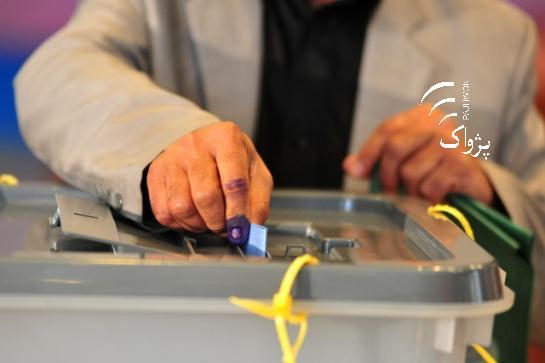KABUL (Pajhwok): The assessment and relocation of Polling Stations has been incomplete, with the number of Polling Stations cut in areas where more refugees have returned, Pajhwok Afghan News has reliably learnt.
The Independent Election Commission (IEC) says the process of assessing and relocating Polling Stations has been successfully completed to ensure the conduct of transparent polls.
At least 7,355 Polling Stations in 34 provinces have been evaluated and relocated ahead of the Wolesi Jirga and district council elections, scheduled to be held in July next year.
According to the previous list dated three back to the presidential election, the number of Polling Stations was 7,180 but after the process of assessment and relocation, it increased to 7,355.
Based on the new assessment, the number of voters at each centre in Kabul is nearly 4,000. The number of voters at centre went up from 2,000 to 2,500 in 19 provinces and from 1,000 to 2,000 in five others.
Less than 1,000 eligible people will cast their ballots at a single centre. The lowest number of voters in a voting center in Panjsher province has been recorded at 768.
Statistics show in most provinces the number of Polling Stations has surged. But, in some other provinces, the number has declined.
Another list of IEC indicates no major change in the number of Polling Stations in 15 provinces.
In Daikundi, Ghor, Bamyan, Helmand, Takhar, Faryab, Kunar, Zabul, Parwan, Samangan and Badghis provinces, 72 to 13 voter centres had been added.
In Nangarhar, Paktika, Kandahar, Heart, Paktia, Kapisa, Laghman, and Panjsher 41 to 11 voters centres had been removed.
As per the fresh assessment and relocation, a huge difference has surfaced in voter centres in 10 provinces.
The number of voter centres has fallen in the provinces where more refugees have returned.
In the past three years, 145,000 families (850,000 refugees) repatriated to Nangarhar, Paktika, Kandahar, Herat and Paktika provinces, where the number of voter centres has declined.
On the contrary, in Daikundi, Ghor, Takhar, Helmand and Bamyan provinces, where inhabitants have been internally displaced to other places, the number of Polling Stations had increased.
Over 2,000 families — or 13,000 people — have migrated from these provinces.
Information from the Ministry Refugee and Repatriation Affairs reflects 123,000 families have migrated to Nangarhar, 10,000 to Paktika, 3,250 to Kandahar, 267 to Herat and over 9,000 to Paktia in the past three years.
Provincial authorities say 120 families have migrated from Daikundi, 344 from Ghor, nearly 500 from Bamyan, over 300 from Helmand and around 950 from Takhar.
Reaction to the fresh assessment of polling stations by IEC
MP Aryan Youn alleged the fresh assessment and relocation of polling stations in Nangarhar had been politically motivated and driven by bias — something that would trigger a strong public backlash.
The lawmaker pointed out that lack of professional people and political interference had allowed the mistakes to happen.
Provincial Council Secretary Zabihullah Zmarai accused IEC of unfair behaviour, saying the decline of polling stations in Nangarhar showed the panel had no information about the eastern province.
He added the fall in the number of polling stations had happened at a time when hundreds of thousands of refugees had come back to Nangarhar in recent years. The anomaly would harm the transparency of the upcoming elections, he warned.
Mohammad Yousuf Rashid, head of the Free and Fair Election Foundation of Afghanistan (FEFA), blamed the poll panel for ignoring balance in the relocation and assessment of polling stations.
“Under the law, polling stations should be identified on the basis of geographical location and exact number of voters. The IEC did not go through this process and identified the polling stations on the basis of assumption.
The IEC could not be reached for comments in this regard. But the Operation Department of the IEC told reporters the voter centre assessment failed to ensure balance among the centres in different provinces.
But a formal letter recently issued by the Operational Department to the IEC Secretariat hailed the assessment as a huge achievement under the current circumstances.
It is pertinent to mention the IEC has already launched the complaint registration process regarding the assessment and relocation of polling stations.
nh/mud







GET IN TOUCH
NEWSLETTER
SUGGEST A STORY
PAJHWOK MOBILE APP